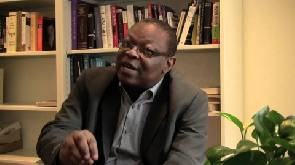 Until Nigeria and its West African neighbours start confronting Boko Haram as a bloc, the Islamist militant group will continue to have a strong foothold in Africa’s most populous country and wreck more havoc, that is the warning from Ghanaian security analyst Emmanuel Bombande.
Until Nigeria and its West African neighbours start confronting Boko Haram as a bloc, the Islamist militant group will continue to have a strong foothold in Africa’s most populous country and wreck more havoc, that is the warning from Ghanaian security analyst Emmanuel Bombande.
The former Executive Director of the West African Network for Peacebuilding (WANEP) said Monday that Chad, Cameroon, Niger and Nigeria must close ranks and join forces in confronting the anti-Western terrorist group.
The between 6,000-8,000-member terrorist group, which was formed in 2002, has killed thousands in Nigeria and caused the displacement of about 1.5 million people. It recently, on January 3, 2015, killed, according to local reports, close to 2,000 people at a town called Baga.
Nigeria’s defence ministry has, however, estimated the number of people killed to be not more than 150. The terrorist group sacked the entire town during the attack. Some survivors fled to neighbouring Chad.
At the weekend, at least 23 people were killed by three female suicide bombers, one reported to be 10 years old.
In neighbouring Cameroon, the military said it had repelled an attack by Boko Haram insurgents on one of its northern bases.
A military source told the BBC that the insurgents had come in over the Nigerian border. In the exchange of gunfire, the army said one soldier and several insurgents were killed.
In April 2014, Boko Haram kidnapped over 270 schoolgirls at a town called Chibok and have been in captivity since. A few of them, however, managed to escape to safety.
In the light of the latest attacks, Mr Bombande believes tighter collaboration among Nigeria, Niger, Chad and Cameroon will be the best way to confront Boko Haram.
As far as the commitment of troops by the neighbouring countries towards fighting Boko Haram is concerned, Bombande regretted that Niger and Chad have withdrawn their commitment, while Cameroon prefers to fight from its grounds as Nigeria itself has lost control over the situation.
“Let the truth be told, Nigeria has demonstrated the presence of the authority of the state in northeastern Nigeria. So what are we left with? A disunified regional approach that includes Central Africa in terms of Chad and Cameroon, the lack of willingness to put this problem as a regional security problem before ECOWAS because Nigeria wants to deal with it alone,” Bombande told Richard Sky in an interview on Citi FM’s Eyewitness News Monday.

